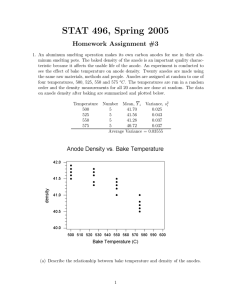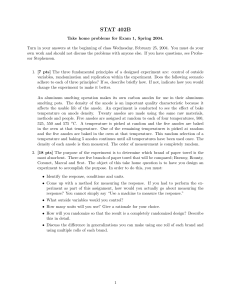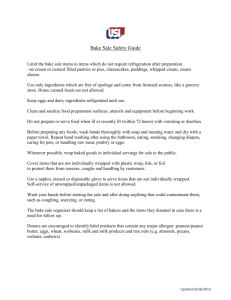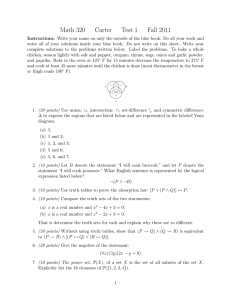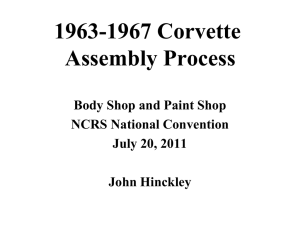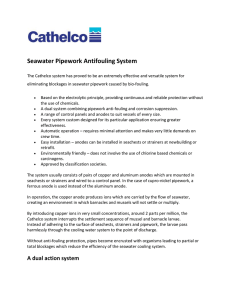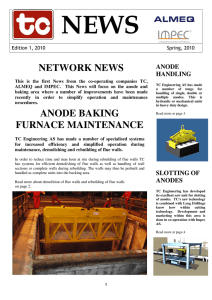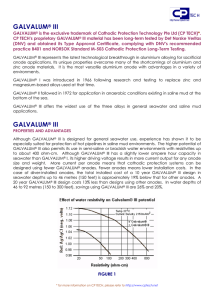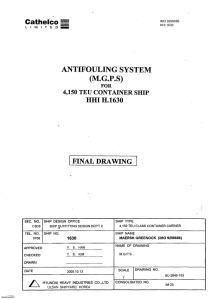STAT 496, Spring 2009
advertisement
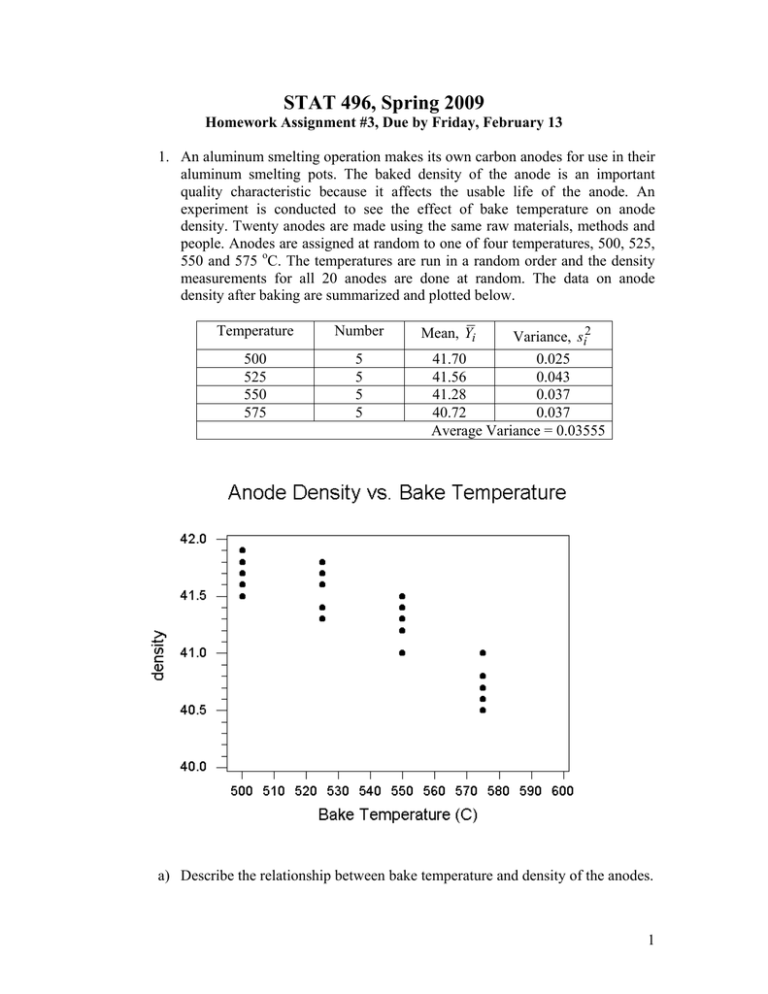
STAT 496, Spring 2009 Homework Assignment #3, Due by Friday, February 13 1. An aluminum smelting operation makes its own carbon anodes for use in their aluminum smelting pots. The baked density of the anode is an important quality characteristic because it affects the usable life of the anode. An experiment is conducted to see the effect of bake temperature on anode density. Twenty anodes are made using the same raw materials, methods and people. Anodes are assigned at random to one of four temperatures, 500, 525, 550 and 575 oC. The temperatures are run in a random order and the density measurements for all 20 anodes are done at random. The data on anode density after baking are summarized and plotted below. Temperature Number 500 525 550 575 5 5 5 5 Variance, si2 41.70 0.025 41.56 0.043 41.28 0.037 40.72 0.037 Average Variance = 0.03555 Mean, Yi a) Describe the relationship between bake temperature and density of the anodes. 1 b) Code the bake temperature using the formula below. Calculate the simple linear regression line relating density to coded bake temperature. ⎛ Temperature - 537.5 ⎞ C1i = 2⎜ ⎟ 25 ⎝ ⎠ c) Reverse the coding for your equation in b) to obtain the simple linear regression relating density to bake temperature. Graph this line on your plot in a). d) Predict the density of an anode baked at 530 oC. e) What percentage of the variability in density is explained by the linear regression with bake temperature? Note: SSTotal=3.3855. f) Is there a significant linear relationship between density and bake temperature? How do you know? Caution: Be sure to use MSRepError g) Add a quadratic term to you prediction equation by using the coded variable: ⎛⎛ C C 2i = ⎜ ⎜ 1i ⎜⎝ 2 ⎝ 2 15 ⎞ ⎞ ⎟ − ⎟ 12 ⎟ ⎠ ⎠ h) What percentage of variability in tensile strength can be explained by the addition of this quadratic term? i) Is the quadratic term statistically significant? How do you know? Caution: Be sure to use MSRepError j) Given the analysis above write a one paragraph summary about what you have learned about the density of anodes and the bake temperature used in their manufacture. 2
